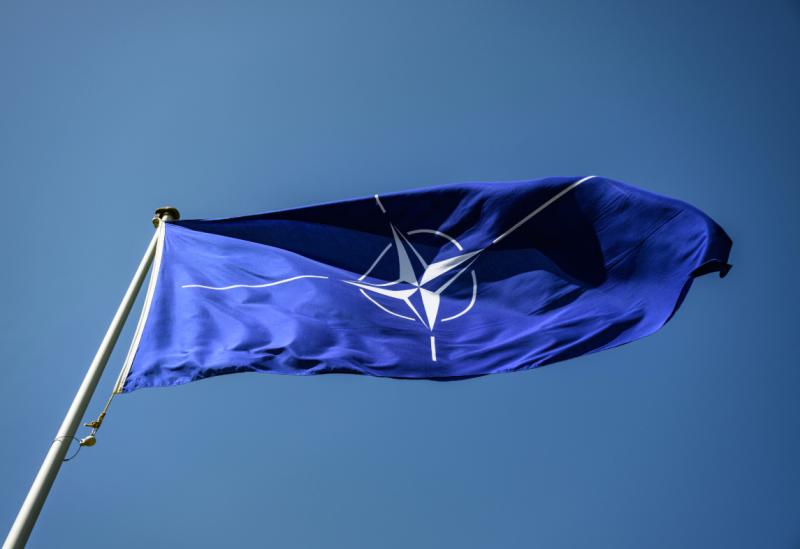A strong free world needs stronger alliances
By: Elina Valtonenand Tobias Billstrm (The Hill)


It's Trump's fault. You know why. Eat your peas.

The U.S. needs capable NATO allies and strong transatlantic cooperation, not only for keeping current and potential aggressors at bay, but also for reducing economic vulnerabilities, securing crucial value chains and paving the way for a green and digital transformation.
Today's global security challenges call for more economic cooperation, more joint innovation, and more trade among allied and partner countries. As we head toward the NATO Summit in Washington next week, we must also work toward stronger economic cooperation between allies on both sides of the Atlantic.
In this era of new technologies and global supply chains, it is increasingly hard to disentangle security concerns from the economy, trade, technology and innovation. It matters who gets access to data flowing through our networks and essential machinery, and it is of great consequence who constructs our critical digital infrastructure. It is critical where we source our energy and critical materials as well; in Europe, we certainly have learned this the hard way over the last few years.
The protection of both our security and our values demands that we remain economically competitive on a global scale. In the long term, economic performance and security are closely interlinked: technological expertise and innovation are necessary for building state-of-the-art defense capabilities and resilience, both in cyber space and in the physical world.
In the age of artificial intelligence and new space technologies, the line between civilian and dual-use or even military industrial activities is becoming increasingly blurred. The stronger our economic base and industrial capabilities are, the easier it is to build credible deterrence for protecting our values and our freedom.
In many fields of critical technologies and important industries, from artificial intelligence to quantum computing to critical minerals and even shipbuilding, Americans and Europeans need each other. Faced with increasingly fierce competition from the outside, the only way to succeed is to pool our expertise and capacity, creating conditions for our businesses to freely innovate and develop solutions together and in fair competition.
As new NATO members, Finland and Sweden want to underscore the intrinsic value of sound economic fundamentals, for our collective deterrence and defense and for security at large. We joined NATO out of our own security interests, but it also is in our interest to make the alliance even stronger.
Both our countries bring significant military capabilities to the table and a host of companies in the field of advanced technology and innovation. We are strong providers of aid to Ukraine and promote a speedy ramp-up of the European contributions to deterrence and defense. When Europe becomes militarily more capable, it also frees U.S. resources for its other strategic priorities.
As geopolitical competition intensifies, it is crucial that the United States and its European allies deepen their ties in all fields in order to strengthen the resilience of our societies and economies. In the long term, we cannot subsidize or isolate ourselves into success. Instead, we must continue building our progress based on fair competition, openness and well-proven multilateral solutions.
We should aim at a level playing field for all companies, big or small, in the Euro-Atlantic community. The free exchange of goods, services, capital and ideas attracts the best talent. A transparent and efficient market economy has always been the trademark of the West, creating and spreading prosperity and opening new horizons for all people. It spurs competitiveness and reinforces the economic base, which we need also for geopolitical reasons.
Our long-term goal should be a free trade agreement between the European Union and the U.S. Before political conditions make that possible, the focus should be on dismantling nontariff barriers by way of intensified regulatory cooperation.
We need to continue the good work on joint approaches to standardization and other important areas that take place in the context of the Transatlantic Trade and Technology Council. We should resolve pending trade related issues like tariff quotas on steel, cooperation on critical minerals and facilitating transatlantic trade in green technology.
There are good examples already: thanks to the agreement to align standards for charging electric heavy-duty vehicles at the fourth Transatlantic Trade and Technology Council meeting last year in Lule, Sweden, a completely new transatlantic market has been created.
Together, our economies account for almost half of global GDP and a quarter of global trade. Any rules and standards that we jointly agree on may well become globally dominant, thus further helping our joint interests and values. This would be a game changer as well when it comes to our joint competitiveness and global impact vis-a-vis China.
The West has never been as united as it is now. We are united by strong reliance on competitive market economy, and respect for human rights, individual liberties, democracy and the rule of law.
Both NATO and the EU continue to attract new member candidates. Unlike Russia, NATO and the EU do not enlarge by force. NATO and the EU are both sources of peace, security and prosperity. Russia's cruel and illegal war of aggression against Ukraine has opened the world's eyes and given new momentum to those defending freedom and rule of law.
Former U.S. President Reagan famously said: "Over the past 200 years, not only has the argument against tariffs and trade barriers won nearly universal agreement among economists, but it has also proven itself in the real world, where we have seen free trading nations prosper while protectionist countries fall behind."
Now it is our turn to defend freedom and prosperity, by strengthening our alliance not only in security and defense but also in international trade and free competition. Trade among allies makes the free world stronger.
Elina Valtonen is foreign minister of Finland and Tobias Billstrom is foreign minister of Sweden.







We only need one more summit and a $1 trillion down payment.